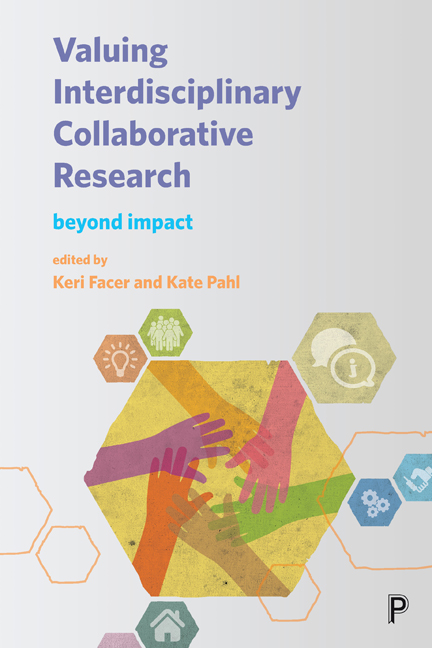Three - Implicit values: uncounted legacies
Published online by Cambridge University Press: 05 April 2022
Summary
Introduction
University–community collaborations are often complex, fraught, emotional affairs. Participants devote a lot of time, energy and emotion to bridging differences, improvising solutions, and making things work. This can be difficult and sometimes frustrating, but can also have a transformative legacy for the participants and the wider communities they are part of. These legacies, however, are not always easy to observe, identify and authorise. As we will explore in this chapter, some of the most important legacies of community–university partnerships are intangible and refer to emotions, affects, ongoing processes and emerging potentials: for example, inspiration, confidence, friendship, as well as knowledge, ideas and networks. These legacies are at least as important as projects’ harder, more tangible and easily measurable legacies.
Our exploration of legacies started with a shared interest in the role that values play in collaborative research, and in the way in which we understand related outcomes. Exploring this through the concept of legacy was particularly relevant as it allows for a more fluid understanding, and one that can be shaped by the local project context. Thus, the theoretical starting point for this work was that making the values within collaborative projects explicit would allow for the identification and evaluation of those, ‘less tangible’, legacies. Our University of Brighton authors Harder, Burford and Hoover previously established that a values-based approach could be very successful for evaluating ‘intangible’ outcomes and achievements projects led by civil society organisations (Burford et al, 2013). They brought the approach, named WeValue, as a raw starting point to the members of two complex partnerships called Scaling Up Co-Design and the Authority Research Network (ARN), and then collectively as a consortium we co-explored, co-developed and co-generated a localisable, values-based approach for a new purpose: to identify and legitimise legacies (not only outcomes) from partnership projects (not projects from a single group or organisation).
By ‘starting from values’, we mean starting with what participants consider valuable, meaningful and worthwhile in the context of their group or partnership. An explicit values lens is first locally constructed, and then used to view, identify and evaluate legacies. The WeValue approach was previously developed to allow a formal, rigorous evaluation of ‘soft’ or ‘intangible’ achievements.
- Type
- Chapter
- Information
- Valuing Interdisciplinary Collaborative ResearchBeyond Impact, pp. 65 - 84Publisher: Bristol University PressPrint publication year: 2017

